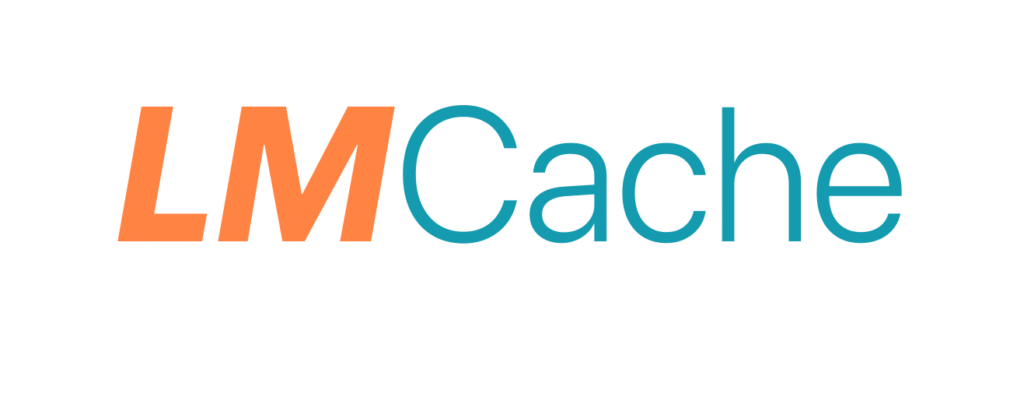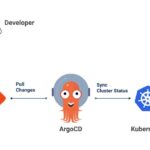
Artificial intelligence is accelerating, and so is the demand for lightning-fast, highly scalable large language models (LLMs). Whether you’re powering summarization, chatbots, generative search, or document intelligence tools, two challenges loom large: reducing time-to-first-token (TTFT) and maximizing throughput—especially with long context inputs or retrieval-heavy (RAG) scenarios.
LMCache is the open-source game changer designed to redefine the speed and efficiency of LLM serving, setting a new industry standard.
What Is LMCache and Why Does It Matter?
LMCache is an LLM serving engine extension focused on solving bottlenecks that hamper existing LLM deployments:
- Reduces TTFT: Slashes the time for users to see the very first response token.
- Boosts Throughput: Handles more requests and longer inputs—without hitting hardware walls or exploding compute costs.
The Innovation: Universal KV Cache Reuse
Standard LLM serving engines like vLLM build speed by caching the key-value (KV) attention matrices for text prefixes. But they don’t reuse any sub-span or chunked results beyond simple cases, and their memory usage can balloon quickly.
LMCache brings in a major leap by:
- Caching reusable text spans (not just prefixes!) across:
- GPU
- CPU memory (DRAM)
- Local disk
- Serving any matching text chunk from cache, instantly, across any request instance or even across different models.
This universal, high-speed cache unlocks revolutionary speed and reduces resource use in practical LLM deployments.
How LMCache Works
1. KV Cache Storage Everywhere
LMCache builds a distributed hierarchy of KV cache storage, intelligently spanning GPU RAM, CPU RAM, and local storage. It dynamically determines where to store and retrieve each chunk to maximize performance and minimize bottlenecks.
2. Smart Matching and Lookup
Instead of only recognizing and serving exact prefix reuse, LMCache identifies any previously calculated segment—making it a powerful tool for scenarios where retrieval or repeated context are dominant.
3. Effortless Integration
LMCache is designed to be dropped in with vLLM (and extensible to other popular LLM engines). It requires no major architectural rewrites, allowing enterprise and research teams to benefit right away.
Real-World Benchmarks: Dramatic Performance Gains
Use Case 1: Long Contexts (25,000 tokens; Llama 70B on A40 GPU)
- Without LMCache: TTFT is close to 28 seconds
- With LMCache: Under 4 seconds
- Speedup: ~7.7x faster—users see practically instant responses without waiting through massive conversational or document history
Use Case 2: Retrieval-Augmented Generation (RAG, 4×2,000-token chunks)
- Without LMCache: TTFT over 13 seconds
- With LMCache: Around 3.6 seconds
- Speedup: 3.6x reduction—massive for search, QA, and generation across retrieved knowledge
Benchmark Table
| Scenario | vLLM TTFT (sec) | vLLM + LMCache TTFT (sec) | Speedup |
|---|---|---|---|
| Long Context (25,000 tokens) | ~28 | ~3.7 | 7.7× |
| RAG (4×2k retrieved chunks) | ~13 | ~3.6 | 3.6× |
Why Is This Such a Big Deal?
1. For Developers and Researchers
- Dramatically shortens experiment cycles.
- Makes long-context and RAG pipelines practical at scale.
- Reduces hardware cost (via fewer wasted GPU cycles).
- Easy to adopt in popular open LLM backends.
2. For Businesses
- Translates directly into snappier chatbots and search, resulting in superior user experiences.
- Enables scalable AI products even under hardware constraints.
- Open-source and flexible: avoid vendor lock-in.
3. For the Open-Source Community
- LMCache is 100% open—auditable, customizable, and extensible by anyone.
- Fosters innovation in optimizing inference across industry and academia.
Deep Dive: How LMCache Slashes TTFT and Boosts Throughput
Normal LLM Serving Flow:
- Each request, even with repeated text, largely recomputes attention and caches only linear prefixes.
- Context windows have practical limits due to memory expense and diminishing speed.
With LMCache:
- Any text chunk previously processed (in any request, even across sessions and models) can be loaded from cache—no unnecessary recomputation.
- Nonlinear (not just prefix) reuse is unleashed, making RAG and super-long input sizes fast.
- The result: GPU resources are reserved for genuinely novel computation, and the system scales upward in both speed and efficiency.
Perfect Use Cases
- Conversational AI & Chatbots: Transform sluggish, multi-turn conversations into real-time dialogues—even as conversation history grows.
- RAG (Retrieval-Augmented Generation): Search and blend documents at record speed—great for knowledge assistants, enterprise QA, and code retrieval.
- Legal, Code, and Technical Summarization: Process long documents, contracts, or code bases without slowdowns.
- Enterprise AI Search: Handle huge document repositories without latency spikes.
Getting Started with LMCache
- Clone the Repository: Get the latest LMCache directly from its open-source hub.
- Integrate with vLLM: Follow well-documented guides to enable KV cache reuse.
- Configure Storage: Choose and balance storage locations (GPU, CPU, disk) to match your hardware and workload profile.
- Benchmark and Optimize: Test against your own data and see your latencies plummet and throughput soar!
- Contribute and Extend: Join the open-source community to drive further innovation.
LMCache in Action: A Quick Demo
You submit a 25,000-token document for summarization.
With classic vLLM: You wait 28 seconds to see the first word.
With LMCache: You get your first response in under 4 seconds.The difference? LMCache instantly reuses every matching segment, freeing up the GPU for what’s new instead of repeating what’s already known.
Conclusion
LMCache isn’t just an incremental improvement—it’s a paradigm shift for LLM serving. By unlocking universal KV cache reuse, it dramatically reduces latency, maximizes throughput, and makes previously prohibitive workloads easy and affordable.
Open-source, easy to integrate, and already setting new speed records—LMCache is the essential toolkit for anyone serious about LLM performance.
Experience the future of LLM inference—today—with LMCache.
Follow us for more Updates











